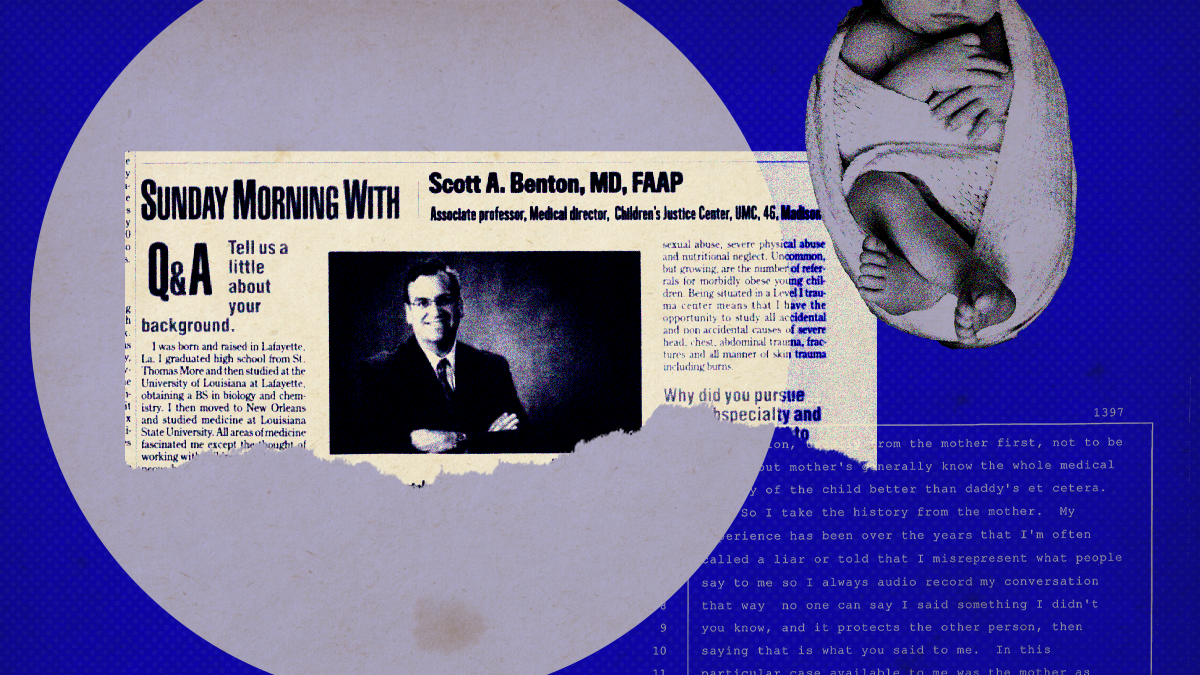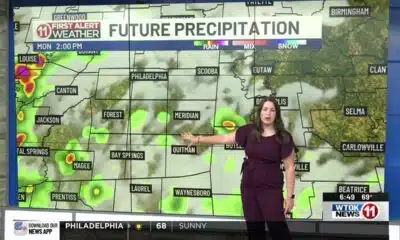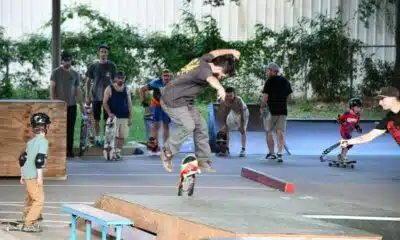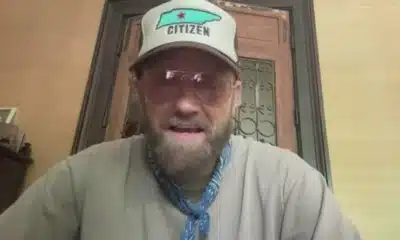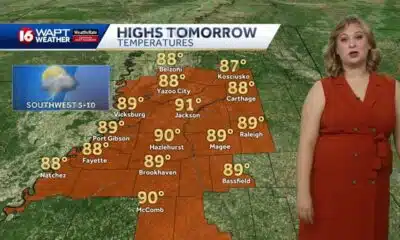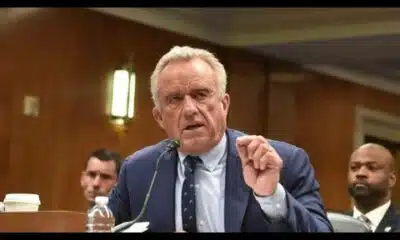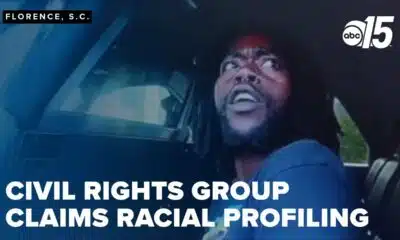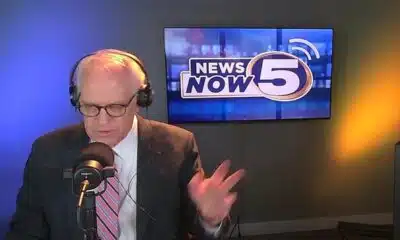Mississippi Today
Mississippi’s child abuse pediatrician works between medicine and the justice system. Can he be objective?
Mississippi’s child abuse pediatrician works between medicine and the justice system. Can he be objective?
This story is the first part in Mississippi Today’s “Shaky Science, Fractured Families” investigation about the state’s only child abuse pediatrician crossing the line from medicine into law enforcement and how his decisions can tear families apart. Read the full series here.
Dr. Scott Benton arrived in Mississippi in 2008 with a mandate to help ensure the University of Mississippi Medical Center stopped getting sued for failing to diagnose child abuse.
Dr. Dan Jones, then UMMC’s vice chancellor for health affairs, had been troubled by the lawsuits following the hospital’s oversights. Benton would later say that Jones wanted to know what the hospital could do to stop this from happening again.
The answer, in part, was Benton, whom Jones recruited to lead a new organization called the Children’s Justice Center. Based at Children’s of Mississippi in Jackson, the center’s mission is to prevent and identify child abuse and neglect.
Right after he arrived, Benton led a two-year effort to develop a surveillance protocol for the entire hospital. Under the protocol, any child admitted to the hospital with trauma – like cuts or broken bones – is screened for potential abuse.
The center was renamed the Children’s Safe Center and now has branches around the state where children can be examined for signs of abuse.
In the 14 years since Benton arrived in Mississippi, he has helped to change the state’s policies, procedures and resources around child abuse. But the success of his center is difficult to measure as the evaluations he conducts are private, and abuse and neglect cases in youth court are sealed, too.
Benton’s career parallels the growth of a unique medical specialty called child abuse pediatrics. Board-certified child abuse pediatricians must demonstrate knowledge of psychology, forensic medicine, neurology and much more. They say their combination of skills makes them uniquely able to determine when abuse has occurred.
Within children’s hospitals around the country, child abuse pediatricians can investigate caregivers they suspect of abuse, make referrals to child protective services, and testify in criminal proceedings. Their work can save children’s lives, and it may be particularly important in Mississippi, which had the country’s highest rate of child deaths due to abuse or neglect in 2021.
But parents who say they’ve been wrongly accused, some doctors in other specialties, and sometimes even child abuse pediatricians themselves say the specialists can be too quick to allege abuse and insufficiently careful in considering other explanations.
And in Mississippi, where he is the only board-certified child abuse pediatrician, Benton has played a particularly powerful role in determining when parents are investigated for child abuse, with limited oversight or consequences for making accusations that are unsubstantiated.
Mississippi Today has uncovered three instances in recent years where parents allege he got it wrong.In each case, there were other explanations or potential medical conditions for the injuries the children exhibited that were not fully vetted by Benton or his team before their caregivers were accused of child abuse.
Parents are often unclear they are being investigated for child abuse when interacting with Benton and his team, they say. Benton said he and his team introduced themselves as “pediatricians from the Children’s Safe Center.”
Benton, through communications officers at the University of Mississippi Medical Center, declined an interview request regarding this investigation from Mississippi Today. The communications officers responded to a limited number of a detailed list of questions and findings Mississippi Today shared with UMMC before publication and received statements from Benton but few direct responses or refutations.
“We walk a fine line between protecting abused children and protecting innocent parents,” Benton said in a statement. “I’m very cognizant of that. I emphasize that fact with staff, and I take that responsibility very seriously.”
In a separate statement, Dr. Mary Taylor, chair of the UMMC Department of Pediatrics, said Benton is “a respected member of our Medical Center staff” who has earned national certifications.
“As medical director of the Children’s Safe Center, Dr. Benton has the difficult role of evaluating the evidence in cases of suspected child abuse in any form and rendering a decision based on his training, many years of experience and deep knowledge of the medical literature. He and his team of trained child abuse specialists provide evidence-supported medical opinions to many governmental agencies that are tasked with ensuring the safety of children. Often times, these children cannot speak for themselves and Dr. Benton’s medical opinions are one part of a defined system of agencies that examine the totality of available evidence about suspected child abuse with the goal of protecting children from exposure to abusive environments.
“UMMC supports the critical work Dr. Benton does through the Children’s Safe Center and values the service he provides to the state as the only board-certified child abuse pediatrician.”
A pediatrician’s path evolves with a new medical specialty
Benton started his medical career in the 1990s, in his native Louisiana. His path in medicine evolved in tandem with the growth of a new medical specialty in child abuse.
During his second year of residency, he completed a clerkship in “pediatric forensic medicine” — what is now called child abuse pediatrics. He then took a job in pediatrics at the Louisiana State University medical school, which included training at the Center for Child Protection in San Diego, now called the Chadwick Center, and elsewhere.
Benton found himself at the center of a small but increasingly influential field. He became one of the charter members of the Ray E. Helfer Society, an organization of physicians who work on preventing and diagnosing child abuse.
“There’s only a few of us that do this,” he once explained in a deposition. “We recognized that this was building up a body of knowledge that was greater than that of just a general pediatrician… We started thinking that we could possibly have a subspecialty in the late 90s, early 2000s.”
Benton and colleagues applied to the American Board of Pediatrics for the designation.
They argued they offered something unique: an ability to draw together insights from a range of specialties in order to diagnose a crime.
“You have to first show the fund of knowledge, what the factual bases are, you have to compile a full literature, as in any other subspecialty,” Benton said in a 2017 deposition.
In 2009, the board offered a certification exam for the first time. Benton holds certificate number 20 in child abuse pediatrics. Today, there are 330 board-certified child abuse pediatricians across the United States.
Around the country, child abuse pediatricians report suspected abuse and neglect to child protective services, and then may provide evidence to help the state remove a child from his or her family’s custody. In some states, CPS also provides funding for their work.
Their credentials lend their determinations substantial weight in the eyes of CPS caseworkers, police, prosecutors and judges: A Marshall Project analysis found that reports of suspected abuse by medical professionals to child welfare agencies are 40% likelier to be substantiated than reports by non-medical professionals.
A ProPublica and NBC Investigation found thatonly about 5% of child welfare investigationsnationwide lead to determinations of physical or sexual abuse.
And around the country, Black children are disproportionately likely to be investigated. One2017 studyfound that half of all Black children in the US experience a CPS investigation by age 18, compared to less than a quarter of white children.
The three families featured in this series are white.
Benton has testified that his job requires him to “provide service to child protection, law enforcement and Mississippi prosecutors.” He started providing expert testimony soon after he began his medical career, first testifying in a case in September 1996.
Critics of this medical specialty — including defense attorneys and some doctors in other fields — argue that child abuse pediatricians are susceptible to bias because of their frequent and close interactions with law enforcement.
At one conference on shaken baby syndrome and abusive head trauma, a speaker presented defense expert testimony alongside a picture of Pinocchio. The event concluded with doctors and prosecutors singing a song mocking skeptics of the diagnosis to the tune of, “If I only had a brain.”
State public defender André de Gruy drew a parallel between child abuse pediatricians and medical examiners housed in the Department of Public Safety — both are scientists who say their work is objective, but who work closely with law enforcement and prosecutors.That may shape their interpretations.
“I think (Benton) is going to find abuse because he has a bias towards finding abuse, in my opinion,” de Gruy said. “In most of the cases, I suspect he finds abuse and there is abuse. But I think that there are the cases, the close calls, which is where the trouble comes in, where he’s going to find abuse but someone else will look at it and not.”
Child abuse pediatricians and many colleagues in other medical specialties and fields like law enforcement and social work see their work as essential to identifying and intervening in cases of abuse. They say they follow the evidence.
Dr. Christopher Greeley, who leads the child abuse pediatrics team at Texas Children’s Hospital, told NBC News that he and colleagues always work to rule out alternative explanations before making an accusation of abuse.
“We don’t say, ‘Eh, take the kid away,’ in a sort of flippant manner,” he told the news station.
Greeley, a past president of the Helfer Society who also chairs its public relations committee, did not respond to emails from Mississippi Today seeking an interview.
Mississippi’s only child abuse pediatrician builds a new surveillance system
When Benton moved to Mississippi in 2008, the state was under pressure to improve protections for abused children. A federal lawsuit in 2004 charged that the state was failing to prevent abuse and neglect of kids in the foster system. In response, the Legislature created the Children’s Justice Center in 2007, aiming to standardize and professionalize investigations of suspected abuse.
In an interview with the Clarion-Ledger in 2012, Benton explained that while working in New Orleans, he had developed one of the country’s “largest and (most) innovative child abuse programs” with the Audrey Hepburn Children At-Risk Evaluation Center. But in 2005, Hurricane Katrina destroyed most of his family’s material possessions and left them displaced from their home.
“It was during this time that I was recruited to be the medical director of the (UMMC) center and met with former Gov. Haley Barbour, now Gov. Phil Bryant, numerous legislators, then-University of Mississippi Medical Center Chancellor Dr. Dan Jones, and Pediatrics Chair Dr. Bev Evans,” he told the paper. “This solidified for me that Mississippi was serious about developing an academic forensic medical response for abused and neglected children.”
Benton’s UMMC colleagues welcomed his arrival. Dr. Christopher Blewett, a pediatric surgeon who now works in Missouri, told Mississippi Today that before Benton came to the hospital, the bulk of the work to investigate child abuse and provide evidence during criminal proceedings fell to doctors like him because they were the ones who would see and operate on children with physical trauma sustained from abuse.
Benton, who also lived next door to Blewett when they were both in Mississippi, was “a godsend,” Blewett said. His training equipped him to recognize patterns of injury that could point to abuse, and he largely took over the work of testifying in court.
Blewett said he completely trusts Benton, whom he describes as devoted to his work. He recalled phone calls at 10 p.m. to discuss whether to release a family from the hospital or keep them another day or two so Benton, who frequently travels to testify in court, could interview them in person.
“Obviously it takes a special person to do that work,” Blewett said. “This is just short of like an SVU detective in many cases. It can be pretty grim at times.”
Benton made a similar point during his Clarion-Ledger interview. Other specialists are reluctant “to get involved with the medico-legal evaluation of children,” he told the paper.
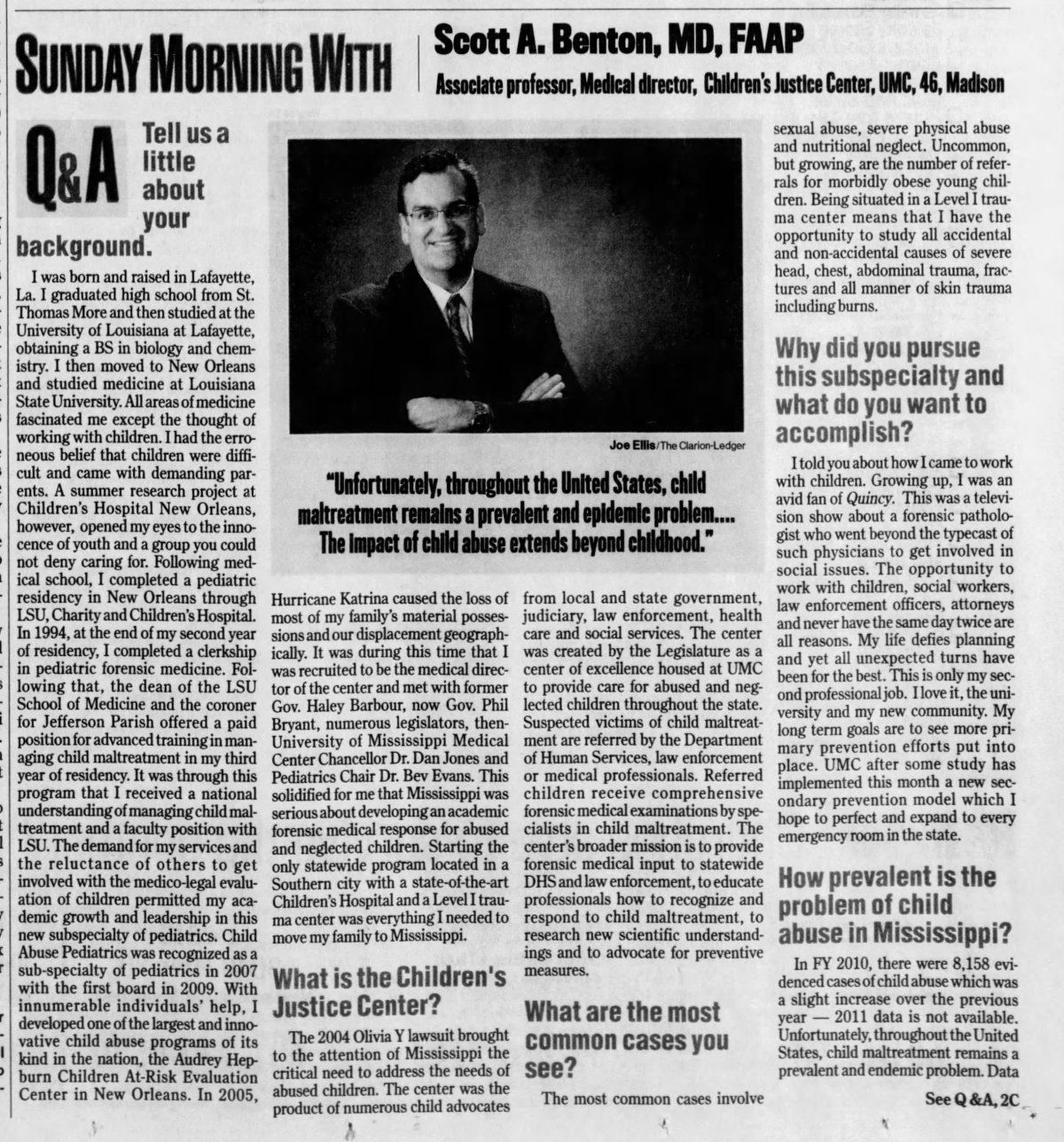
In Mississippi, rates of child maltreatment are higher than the national average. And in recent years, the number of child deaths reportedly caused by abuse and neglect in Mississippi has risen, from 15 deaths in 2007 to 38 in 2020 and 49 in 2021. That year — the most recent year for which such data is available — the state had the country’s highest rate of such deaths, at 7.07 per 100,000 children, compared to a national average of 2.46.
Today, Benton sees patients at the hospital suffering from severe trauma, supervises an outpatient sexual abuse clinic, and examines kids. Child Protective Services, police, lawyers, psychiatrists, pediatricians and emergency rooms refer children to the center.
Benton told Mississippi Today that the state’s child abuse hotline receives about 30,000 calls annually, and about a third of these are substantiated. The Safe Center saw 2,400 children last year, he said.
He also implemented a “high-risk surveillance system,” under which Benton’s team evaluates any child who comes to UMMC with certain injuries or symptoms. The triggers for such evaluation are wide-ranging, according to procedures obtained by Mississippi Today. They include any bone fractures, burns including “significant sunburns” and “all trauma warranting admission.”
Benton’s mandate was to ensure hospital staff missed no warning signs for abuse.
“The general teaching previous to that time was not adequate to keep an open mind about whether parents or caregivers could be abusers,” he told attorneys for a defendant in a fatal child abuse case during a deposition.
The stakes are high on either side, he said. While an incorrect accusation can have serious consequences for a parent, failing to detect abuse can put a child’s life at risk.
“I do think we try to get it right, and I’m not aware that there’s any overcalling going on,” he said. “Nationally, if you look at the statistics on the epidemiology, it’s always the opposite direction. We just take the person at hand and don’t go any further.”
Benton has emphasized that the protocol for reviewing cases he implemented provides protections for caregivers and a systematic exploration of potential causes of injury.
“Before I came here, anyone they thought who had injured the kid was kicked out of the hospital,” he told a group of Mississippi public defenders a decade ago in a recorded presentation Mississippi Today reviewed.
“That was part of their protocol. And I said, ‘Alright, who am I supposed to get the history from? Who am I supposed to figure out whether there’s a medical explanation for… some of these bleeding findings? So we quickly reversed that… We had to have multiple conferences to explain to them a concept you already understand: innocent until proven guilty … We’ve got several kids where we’ve made medical diagnoses where the nurses were like ‘Oh my God, I was ready to crucify this parent,’ and the kid turned out to have a (inaudible) aneurysm in their brain that was mimicking head trauma.”
In an email to Mississippi Today, Benton said the surveillance system does not give him total decision-making power in every case.
“The high-risk surveillance system is a review of other professionals (sic) work and is not an independent investigation by the children’s safe center,” he wrote. “However, if I feel by review that a case should be reported for state CPS investigation, I contact the medical provider involved in the case or the child’s primary care provider and discuss my concerns with them. It is up to them at that point whether they agree with my concerns. This interaction is documented in the child’s medical record.”
It is not clear whether Benton meant that the other medical providers in the case must make the decision to involve CPS. He and UMMC communications officials repeatedly declined Mississippi Today’s interview requests and responded directly to only a small number of questions sent via email.
When Mississippi Today asked for clarification on this particular point, UMMC did not respond.
The law gives doctors and law enforcement an incentive to allege abuse any time it appears possible. It protects people who make a good faith report of abuse or neglect from any liability if they get it wrong, while failure to report can lead to a fine and up to a year in prison.
But Benton has said keeping “an open mind” does not mean jumping to conclusions about whether abuse has occurred. The Clarion-Ledger asked him what adults should do if they suspect a child is being abused.
“My first advice would be to not overreact,” Benton said. “Listen to the child.”
He encouraged “passive listening,” in which a caregiver repeats back what a child says in a questioning tone.
“Then be silent and wait for further response,” he said.
Once you suspect abuse, call the state child abuse hotline.
He also pointed to social factors that can contribute to abuse, like caregivers being out of work, displaced, or otherwise stressed. And most physical abuse, he said, is related to “inadequate parenting skills coupled with frustration.” Benton added that stressful situations involving feeding, crying and misbehavior could cause “an otherwise sane caregiver to lose patience.”
As the doctor charged with accusing caregivers of child abuse, Benton is acquainted with angry denials and furious criticism.
“My experience has been over the years that I’m often called a liar or told that I misrepresent what people say to me, so I always audio record my conversations,” he said on the stand during a 2014 trial. “That way no one can say I said something I didn’t, you know, and it protects the other person.”
Two of the mothers featured in this series attempted to obtain the recordings of their conversations with Benton in the hospital but were unable. One was told she must have an attorney, and the other could not get in touch with an employee of the Children’s Safe Center, where the recordings are housed.
A controversial diagnosis
Child abuse pediatricians like Benton are trained to recognize signs of abusive head trauma, formerly known as shaken baby syndrome (SBS), and often provide expert testimony in trials. For decades, three findings were considered indicative of the syndrome: subdural bleeding, retinal bleeding and swelling of the brain.
Questions about abusive head trauma comprise 10% of the certifying exam for child abuse pediatricians, more than almost any other topic on the exam. (Child fatalities and musculoskeletal injuries comprise 4% and 8% of the exam, respectively.)
Thousands of people in the U.S. have been convicted of shaking a baby to death since the 1970s.
Yet the scientific bases of the diagnosis are increasingly coming under question. A 1987 study reviewed 48 cases of “shaken baby syndrome” in the Philadelphia area and found that of the 13 fatalities, all had signs of impact, too. Biomechanical studies, including one published in 2022, have also found that forceful shaking of an infant will cause injury to the neck before the brain, although neck injuries have not been considered diagnostic of the syndrome.
Retinal hemorrhage, once regarded as conclusive proof of the syndrome, has been seen in infants who died from causes like meningitis or an obstructed airway.
Researchers have also found that short falls can generate much more force than shaking, and a 2001 study that looked at children’s falls from playground equipment — but did not include infants — found that short falls could cause death, as well as retinal bleeding, and could be preceded by a lucid interval.
Critics of these studies say biomechanical models are not real infants. It’s impossible to test the theory on babies.
The dispute over the science plays out in courtrooms around the country. The Washington Post reported in 2015 that at least 16 people in the U.S. had overturned their convictions since 2001, as judges determined that new information created reasonable doubt as to their guilt.
Indeed, a 2018 “consensus statement” published in the journal Pediatric Radiology was written in response to what the authors described as “speculative theories that cannot be reconciled with generally accepted medical literature” now being advanced during trials. The statement explained the injuries could be caused by shaking alone, shaking and impact, or impact alone.
“There is no controversy concerning the medical validity of the existence of AHT, with multiple components including subdural hematoma, intracranial and spinal changes, complex retinal hemorrhages, and rib and other fractures that are inconsistent with the provided mechanism of trauma,” the statement said.
The idea that shaking alone could cause fatal injuries in infants was introduced in 1971 by British pediatric neurosurgeon Norman Guthkelch. He published a two-page paper in the British Medical Journal titled “Infantile Subdural Haematoma and its Relationship to Whiplash Injuries” that established the link between shaking and head injuries in infants.
With his research, Guthkelch was attempting to solve a problem he kept encountering in his practice. Small children showed up to the hospital where he worked with bleeding on the surface of their brains, but with no broken bones or bruises to indicate they had been abused. He reviewed 23 cases of alleged child abuse, with subdural hematoma in 13. In five of those cases, there was no external sign of injury, and Guthkelch theorized their injuries could have been caused by shaking.
In the years that followed, doctors were trained to strongly suspect abuse if children came in with subdural hematomas, brain swelling and bleeding in the retinas. A guide to investigating child abuse published by the Justice Department in the late 1990s called retinal hemorrhage in babies “for all practical purposes, conclusive evidence of shaken baby syndrome in the absence of a good explanation.”
Prosecutors have won convictions with no eyewitnesses to the alleged shaking and no theory as to why the defendant would shake the infant, with little evidence beyond a doctor’s diagnosis based on a supposedly definitive set of symptoms.
For prosecutors, shaken baby syndrome provides a tidy narrative: It is “a medical diagnosis for murder,” as Deborah Tuerkheimer, a law professor at Northwestern University and expert on shaken baby syndrome convictions put it in her 2009 article in the Washington University Law Review.
In 1996, Wisconsin day care provider Audrey Edmunds was convicted of murder in the death of a 7-month-old baby in her care. The prosecution’s argument hinged on what was then regarded as medical fact: The presence of retinal hemorrhage, subdural bleeding and brain swelling — plus the absence of another explanation for those findings — provided a powerful indication the baby had been shaken. And the timing of the baby’s decline purportedly proved Edmunds was responsible. Her defense did not challenge the science around shaken baby syndrome.
In 2008, however, Edmunds was granted a new trial. A judge determined that “a shift in mainstream medical opinion” on shaken baby syndrome meant a new jury could have reasonable doubt as to her guilt. The district attorney dropped the charges, and Edmunds was freed.
The outcome cast a spotlight on the controversy brewing over the diagnosis.
Guthketlch himself went on to express horror that prosecutors were using the diagnosis he had popularized to convict parents and caregivers when there was no other evidence of abuse. He spent the final years of his life reviewing controversial SBS cases and noted a high proportion of the children in them had a history of underlying illnesses or conditions that could explain their injuries, but that these issues were rarely considered in medical reports.
“While society is rightly shocked by any assault on its weakest members and demands retribution, there seem to have been instances in which both medical science and the law have gone too far in hypothesizing and criminalizing alleged acts of violence in which the only evidence has been the presence of the classic triad or even just one or two of its elements,” Gulthkelch wrote in a paper published in the Houston Journal of Health Law & Policy in 2012. “Often, there seems to have been inadequate inquiry into the possibility that the picture resulted from natural causes.”
In 2009, the American Association of Pediatrics issued a policy statement recommending doctors stop using the term “shaken baby syndrome” and instead use “abusive head trauma,” a terminology shift to describe the clinical findings instead of the mechanism of injury. The statement said injuries could be caused by shaking, impact, or some combination of both.
To critics, the name change presents an obvious problem: If the injuries can also be caused by impact, and defendants’ accounts of what happened describe an accidental impact, how can doctors be certain the injuries were caused by abuse?
Child abuse pediatricians say the science of abusive head trauma is sound, and that when a child has a specific set of symptoms, a different diagnosis is unlikely. They argue that critics of the diagnosis are putting kids at risk.
“The controversy exists among just a few individuals predominantly traveling on the defense circuit, some of whom are making $600,000 a year providing testimony that is factually scientifically counterintuitive, counter science,” Benton said in one sentencing hearing in 2018, “so I wouldn’t call that controversy when the people — I mean, you’re making it as if it’s balanced. Is it controversy? Yes, we’re very upset when somebody misuses science in the furtherance of a child who in our estimation has been abused.”
Reading a newspaper, finding a homicide
When Benton arrived in Mississippi, he understood the Children’s Justice Center had a decade of guaranteed funding thanks to the state’s $100 million settlement with WorldCom Inc., a telecommunications company that collapsed in a multibillion-dollar fraud scandal. It turned out that was a drastic overestimate. Instead, he had a few years’ worth of funding, and he had to look for other revenue streams.
That was how the case of a man named Jeffrey Havard first came across his desk. Havard was convicted of capital murder in the death of his girlfriend’s 6-month-old daughter in 2002, and sentenced to death. The prosecution’s theory was that Havard had sexually assaulted the baby and shaken her to death.
The director of the center read a story in the Clarion Ledger about Havard’s case by longtime investigative reporter Jerry Mitchell. The state Supreme Court had just rejected an appeal from Havard, but Mitchell had interviewed a pathologist who reviewed medical records and concluded there was no evidence of sexual assault or of homicide, and that the baby’s injuries were consistent with Havard’s claim that he had dropped her.
The center’s director thought Benton could potentially apply his expertise to the case. Helping to right an injustice might boost name recognition and funding for the center.
But Benton didn’t see an injustice.
“As I read the facts as put forth in the above sources,” he wrote to Mitchell on March 15, 2012, referring to the newspaper article and the state Supreme Court decision upholding Havard’s conviction, “I believe they support a homicide.”
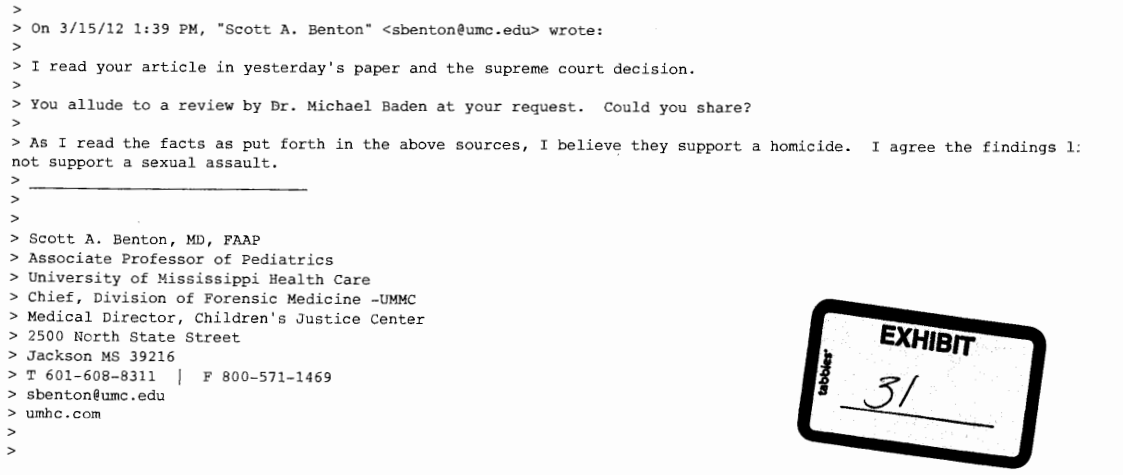
Mississippi Today health editor Kate Royals contributed to this report.
Editor’s note: Kate Royals, Mississippi Today’s community health editor since January 2022, worked as a writer/editor for UMMC’s Office of Communications from November 2018 through August 2020, writing press releases and features about the medical center’s schools of dentistry and nursing.
This article first appeared on Mississippi Today and is republished here under a Creative Commons license.
Mississippi Today
UMMC hospital madison county
The University of Mississippi Medical Center has acquired Canton-based Merit Health Madison and is preparing to move a pediatric clinic to Madison, continuing a trend of moving services to Jackson’s suburbs.
The 67-bed hospital, now called UMMC Madison, will provide a wide range of community hospital services, including emergency services, medical-surgical care, intensive care, cardiology, neurology, general surgery and radiology services. It also will serve as a training site for medical students, and it plans to offer OB-GYN care in the future.
“As Mississippi’s only academic medical center, we must continue to be focused on our three-part mission to educate the next generation of health care providers, conduct impactful research and deliver accessible high-quality health care,” Dr. LouAnn Woodward, UMMC’s vice chancellor of health affairs, said in a statement. “Every decision we make is rooted in our mission.”
The new facility will help address space constraints at the medical center’s main campus in Jackson by freeing up hospital beds, imaging services and operating areas, said Dr. Alan Jones, associate vice chancellor for health affairs.
UMMC physicians have performed surgeries and other procedures at the hospital in Madison since 2019. UMMC became the full owner of the hospital May 1 after purchasing it from Franklin, Tennessee-based Community Health Systems.
The Batson Kids Clinic, which offers pediatric primary care, will move to the former Mississippi Center for Advanced Medicine location in Madison. This space will allow the medical center to offer pediatric primary care and specialty services and resolve space issues that prevent the clinic from adding new providers, according to Institutions of Higher Learning board minutes.
A UMMC spokesperson did not respond to questions about the services that will be offered at the clinic or when it will begin accepting patients.
The Mississippi Center for Advanced Medicine, a pediatric subspecialty clinic, closed last year as a result of a settlement in a seven-year legal battle between the clinic and UMMC in a federal trade secrets lawsuit.
The changes come after the opening of UMMC’s Colony Park South clinic in Ridgeland in February. The clinic offers a range of specialty outpatient services, including surgical services. Another Ridgeland UMMC clinic, Colony Park North, will open in 2026.
The expansion of UMMC clinical services to Madison County has been criticized by state lawmakers and Jackson city leaders. The medical center does not need state approval to open new educational facilities. Critics say UMMC has used this exemption to locate facilities in wealthier, whiter neighborhoods outside Jackson while reducing services in the city.
UMMC did not respond to a request for comment about its movement of services to Madison County.
UMMC began removing clinical services this year from Jackson Medical Mall, which is in a majority-Black neighborhood with a high poverty rate. The medical center plans to reduce its square footage at the mall by about 75% in the next year.
The movement of health care services from Jackson to the suburbs is a “very troubling trend” that will make it more difficult for Jackson residents to access care, Democratic state Sen. John Horhn, who will become Jackson’s mayor July 1, previously told Mississippi Today.
Lawmakers sought to rein in UMMC’s expansion outside Jackson this year by passing a bill that would require the medical center to receive state approval before opening new educational medical facilities in areas other than the vicinity of its main campus and Jackson Medical Mall. Republican Gov. Tate Reeves vetoed the legislation, saying he opposed an unrelated provision in the bill.
This article first appeared on Mississippi Today and is republished here under a Creative Commons Attribution-NoDerivatives 4.0 International License.
The post UMMC hospital madison county appeared first on mississippitoday.org
Note: The following A.I. based commentary is not part of the original article, reproduced above, but is offered in the hopes that it will promote greater media literacy and critical thinking, by making any potential bias more visible to the reader –Staff Editor.
Political Bias Rating: Center-Left
The article presents a primarily factual report on UMMC’s expansion into Madison County, outlining the medical center’s services and strategic decisions while including critiques from Democratic leaders and local officials about the suburban shift. The inclusion of concerns over equity and access—highlighting that the expansion is occurring in wealthier, whiter suburbs at the expense of services in majority-Black, poorer neighborhoods—leans the piece toward a center-left perspective, emphasizing social justice and community impact. However, the article maintains a measured tone by presenting statements from UMMC representatives and government officials without overt editorializing, thus keeping the overall coverage grounded in balanced reporting with a slight progressive framing.
Mississippi Today
Rita Brent, Q Parker headline ‘Medgar at 100’ Concert
Nationally known comedian Rita Brent will host the Medgar & Myrlie Evers Institute’s “Medgar at 100” Concert on June 28.
Tickets go on sale Saturday, June 14, and can be ordered on the institute’s website.
The concert will take place at the Jackson Convention Complex and is the capstone event of the “Medgar at 100” Celebration. Organizers are calling the event “a cultural tribute and concert honoring the enduring legacy of Medgar Wiley Evers.”
“My father believed in the power of people coming together — not just in protest, but in joy and purpose, and my mother and father loved music,” said Reena Evers-Everette, executive director of the institute. “This evening is about honoring his legacy with soul, celebration, and a shared commitment to carry his work forward. Through music and unity, we are creating space for remembrance, resilience, and the rising voices of a new generation.”
In addition to Brent, other featured performers include: actress, comedian and singer Tisha Campbell; soul R&B powerhouse Leela James; and Grammy award-winning artist, actor, entrepreneur and philanthropist Q Parker and Friends.
Organizers said the concert is also “a call to action — a gathering rooted in remembrance, resistance, and renewal.”
Proceeds from the event will go to support the Medgar & Myrlie Evers Institute’s mission to “advance civic engagement, develop youth leadership, and continue the fight for justice in Mississippi and beyond.”
This article first appeared on Mississippi Today and is republished here under a Creative Commons Attribution-NoDerivatives 4.0 International License.
The post Rita Brent, Q Parker headline 'Medgar at 100' Concert appeared first on mississippitoday.org
Note: The following A.I. based commentary is not part of the original article, reproduced above, but is offered in the hopes that it will promote greater media literacy and critical thinking, by making any potential bias more visible to the reader –Staff Editor.
Political Bias Rating: Centrist
This article presents a straightforward, factual report on the upcoming “Medgar at 100” concert honoring civil rights leader Medgar Wiley Evers. The tone is respectful and celebratory, focusing on the event’s cultural and community significance without expressing a political stance or ideological bias. It quotes organizers and highlights performers while emphasizing themes of remembrance, unity, and justice. The coverage remains neutral by reporting the event details and mission of the Medgar & Myrlie Evers Institute without editorializing or promoting a specific political viewpoint. Overall, it maintains balanced and informative reporting.
Mississippi Today
Future uncertain for residents of abandoned south Jackson apartment complex
Residents at Chapel Ridge Apartments in Jackson are left wondering what to do next after months dealing with trash pileups, property theft and the possibility of water shutoffs due to the property owner skipping out on the bill.
On Sunday, Ward 5 Councilman Vernon Hartley, city attorney Drew Martin and code enforcement officers discussed next steps for the complex, which, since April 30, has been without a property manager.
“How are you all cracking down on other possible fraudulent property managers around Jackson?” one woman asked Martin.
“ We don’t know they’re there until we know they’re there, and I know that’s a terrible answer, but I don’t personally have another one I’m aware of right now,” Martin said. “These individuals don’t seem to have owned another apartment complex in the Metro Jackson area, despite owning a whole bunch nationwide.”
Back in April, a letter was left on the door of the leasing office advising residents to not make rental payments until a new property manager arrives. The previous property managers are Lynd Management Group, a company based in San Antonio, Texas.
The complex has been under increased scrutiny after Chapel Ridge Apartments lost its solid waste contract mid-March due to months of nonpayment. The removal of dumpsters led to a portion of the parking lot turning into a dumping site, an influx of rodents and gnats, and an investigation by the Mississippi Department of Environmental Quality. Local leaders pitched in to help remedy the situation, and in May, Waste Management provided two dumpsters for the complex.
However, the problems persisted. In May, JXN Water released the names of 15 apartment complexes that owe more than $100,000 in unpaid water fees. Chapel Ridge was on the list. JXN Water spokesperson Aisha Carson said via email that they are “pursuing legal options to address these large-scale delinquencies across several properties.”

“While no shutoffs are imminent at this time, we are evaluating each case based on legal feasibility and the need to balance enforcement with tenant protections. Our focus is on transparency and accountability, not disruption—but we will act when needed to ensure the integrity of the system,” Carson said.
And earlier this week, Chapel Ridge Apartments was declared a public nuisance. Martin said this gives the city of Jackson “the authority to come in, mow the grass and board up any of the units where people aren’t living.”
Martin said the situation is complicated, because the complex is owned by Chapel Ridge Apartments LLC. The limited liability corporation is owned by CRBM Realty Inc. and Crown Capital Holdings LLC, which are ultimately owned by Moshe “Mark” Silber. In April, Silber was sentenced to 30 months in prison for conspiracy to commit wire fraud affecting a financial institution. Earlier this month, both companies filed for bankruptcy in New Jersey.

Now, Martin said the main goal is to find someone who can manage the property.
“Somebody’s got to be able to collect rent from you,” Martin said. “They got to be able to pay the water. They got to be able to pay the garbage. They got to be able to pay for the lights to be on. They got to maintain the property, so that’s our goal is to put that in place.”
Chapel Ridge offers a rent scale based on household income. Those earning under 50% of the area median income — between $21,800 and $36,150 depending on household size — for example, pay $480 for a two-bedroom and $539 for a three-bedroom unit. Rent increases between $20 and $40 for those earning under 60% of the area median income.
Valarie Banks said that when she moved into Chapel Ridge nearly 13 years ago, it was a great community. The disabled mother and grandmother moved from West Jackson to the complex because it was neatly kept and quiet.
“It was beautiful. I saw a lot of kids out playing. There were people that were engaging you when you came out. They were eager to help,” Banks said. “ I hope that they could bring this place back to the way it once was.”
But after months of uncertainty, Banks is preparing to move. She said she’s not the only one.
“I have somewhere to go, but I’m just trying to get my money together so I can be able to handle the deposits and the bills that come after you move,” she said. “All of my doctors are around here close to me. In 12 years, I made this place home for me. … I’ve been stacking my rent, but it’s still not enough if I want to move this month.”
While she said she’s holding onto her rent payments for the time being, she realizes that many of her fellow residents may not be as lucky. Without someone to maintain the apartments, some residents are finding themselves without basic amenities.
“Some people are in dire straits, because they don’t have a stove or a fridge or the air conditioner,” she said. “Their stove went out, or the fridge went out, or they stole the air conditioner while you’re in the apartment.”
Banks isn’t the only one who is formulating a plan to leave. One woman, who asked to remain anonymous, said she’s been trying to save money to move, but she already has $354 wrapped up in a money order that she’s unable to pass off for her rent, due to the property manager’s recent departure.
“It really feels like an abandonment and just stressful to live where I’m living at right now. This just doesn’t happen. It just feels stressful. It doesn’t feel good at all,” she said.
She’s trying to remain optimistic, but as each day passes without someone to maintain the property, she’s losing hope.
“ I just hope that things get better some day, somehow, hopefully, because if not, more than likely I’m going to have to leave because I can only take so much,” she said. “I can’t continue to deal with this situation of hoping and wishing somebody comes, and they don’t.”
This article first appeared on Mississippi Today and is republished here under a Creative Commons Attribution-NoDerivatives 4.0 International License.
The post Future uncertain for residents of abandoned south Jackson apartment complex appeared first on mississippitoday.org
Note: The following A.I. based commentary is not part of the original article, reproduced above, but is offered in the hopes that it will promote greater media literacy and critical thinking, by making any potential bias more visible to the reader –Staff Editor.
Political Bias Rating: Center-Left
This article from *Mississippi Today* primarily focuses on the struggles of low-income residents at Chapel Ridge Apartments, emphasizing the human impact of property mismanagement, regulatory gaps, and systemic neglect. The piece maintains a factual tone, but it centers the voices of vulnerable tenants and local officials seeking accountability—hallmarks of a center-left perspective. While it does not overtly advocate for policy change, the narrative framing highlights social injustice and institutional failures, subtly aligning with progressive concerns about housing equity and corporate responsibility.
-
Mississippi Today6 days ago
Retired military officer: In America, the military is not used against its own citizens for law enforcement
-
News from the South - Missouri News Feed6 days ago
Repeated problems at Raytown park frustrate neighbors
-
News from the South - Florida News Feed7 days ago
HHS Secretary Robert F. Kennedy Jr. firing every member of panel that makes vaccine recommendations
-
News from the South - South Carolina News Feed7 days ago
SLED investigates Florence traffic stop amid racial profiling allegations
-
News from the South - Florida News Feed5 days ago
Former Jacksonville radio host Mark Kaye announces he’s running for Congress, bashes current Rep. John Rutherford
-
News from the South - Georgia News Feed7 days ago
Georgia GOP's attempt to block Brad Raffensperger from running as a Republican may go nowhere
-
News from the South - Alabama News Feed7 days ago
News 5 NOW at 8:00am |Tuesday, June 10, 2025
-
News from the South - North Carolina News Feed7 days ago
State-federal tensions over ICE rise as Trump deploys troops against Los Angeles protests
